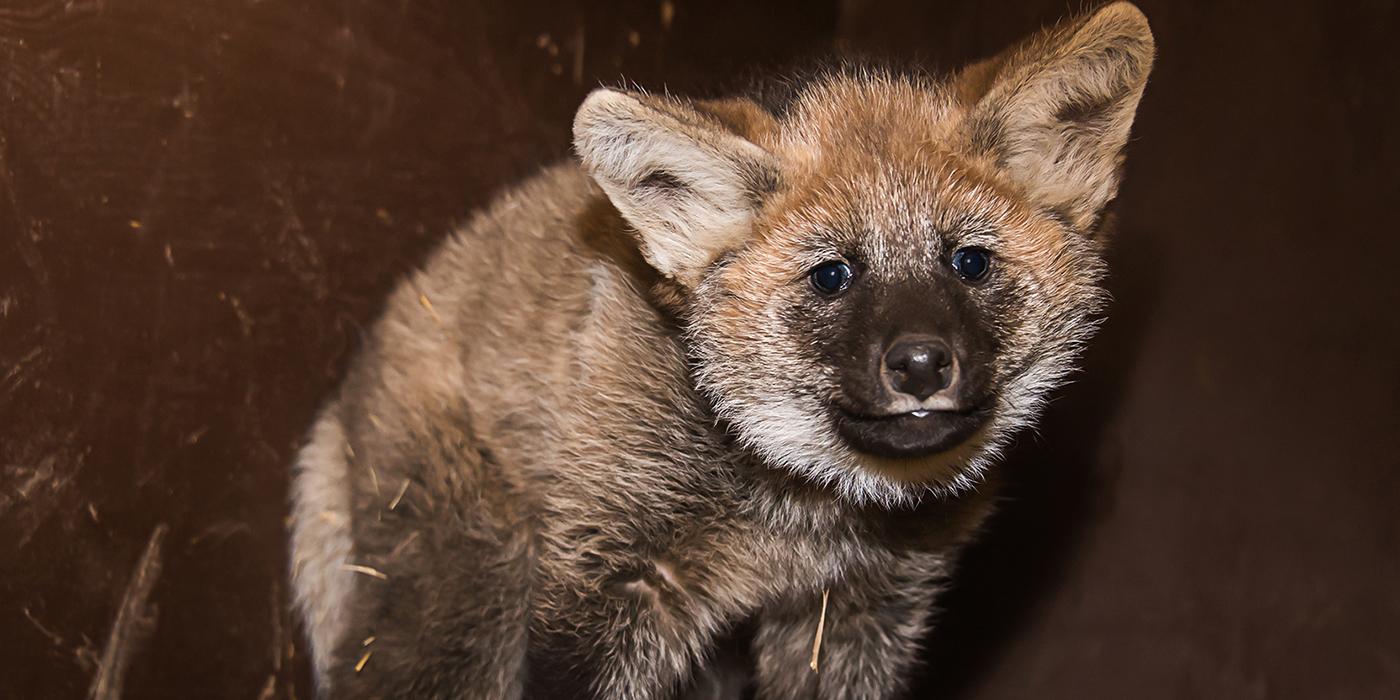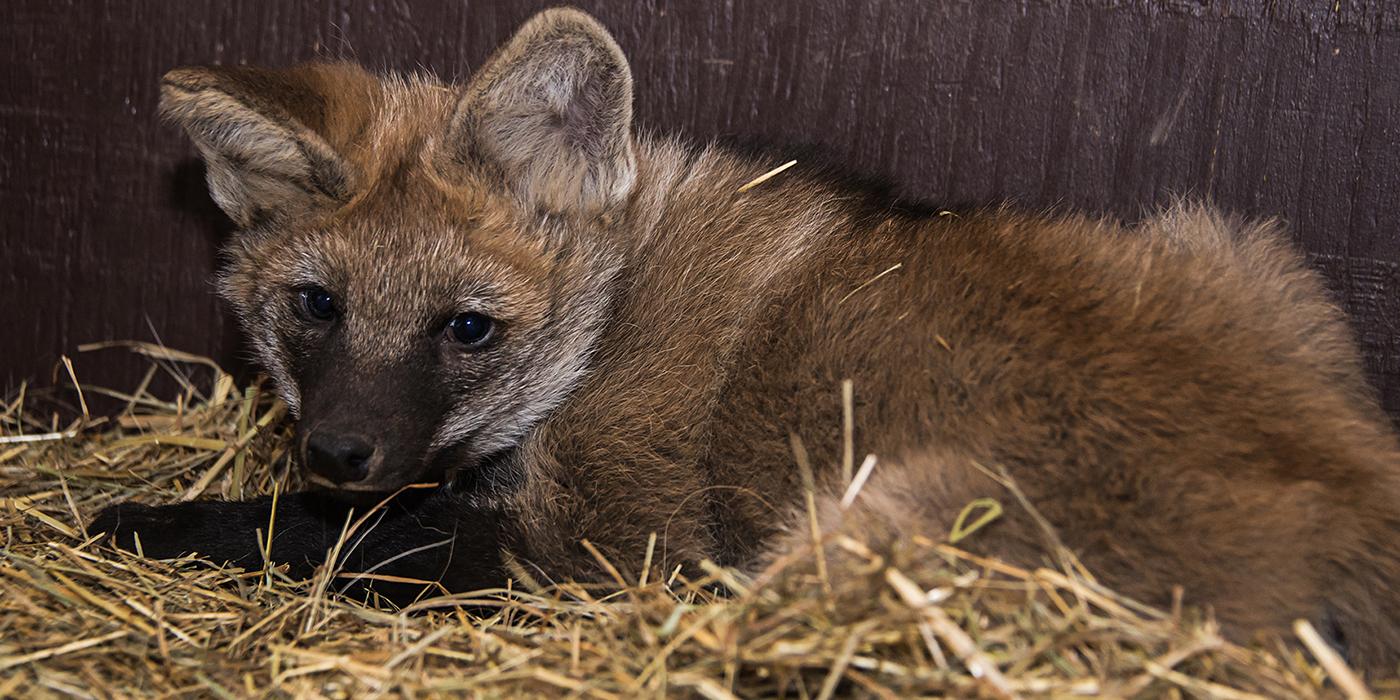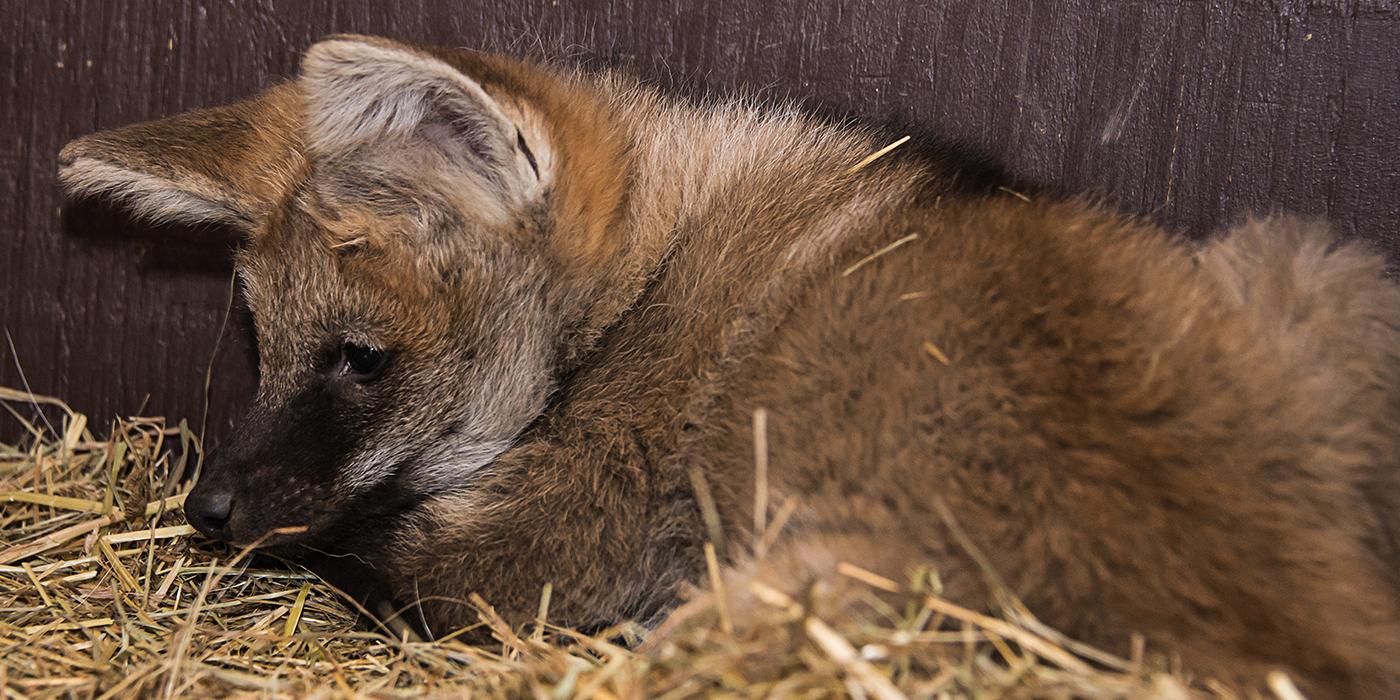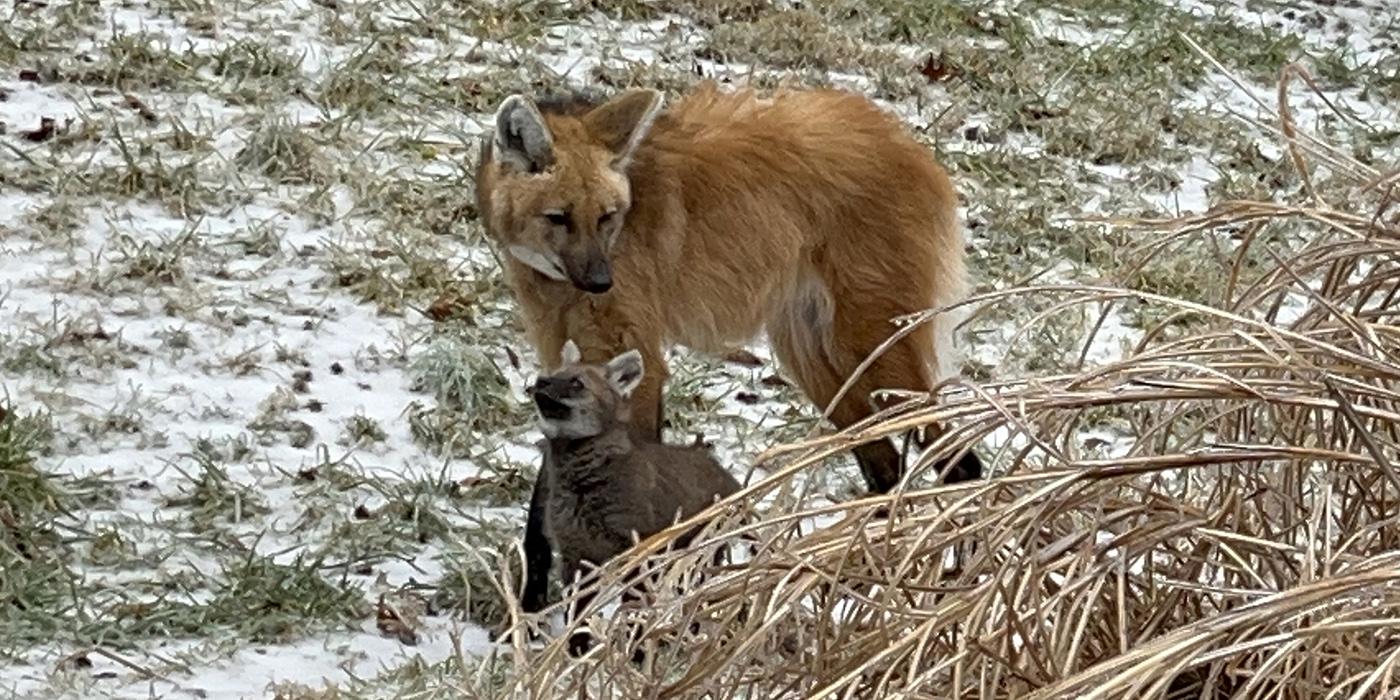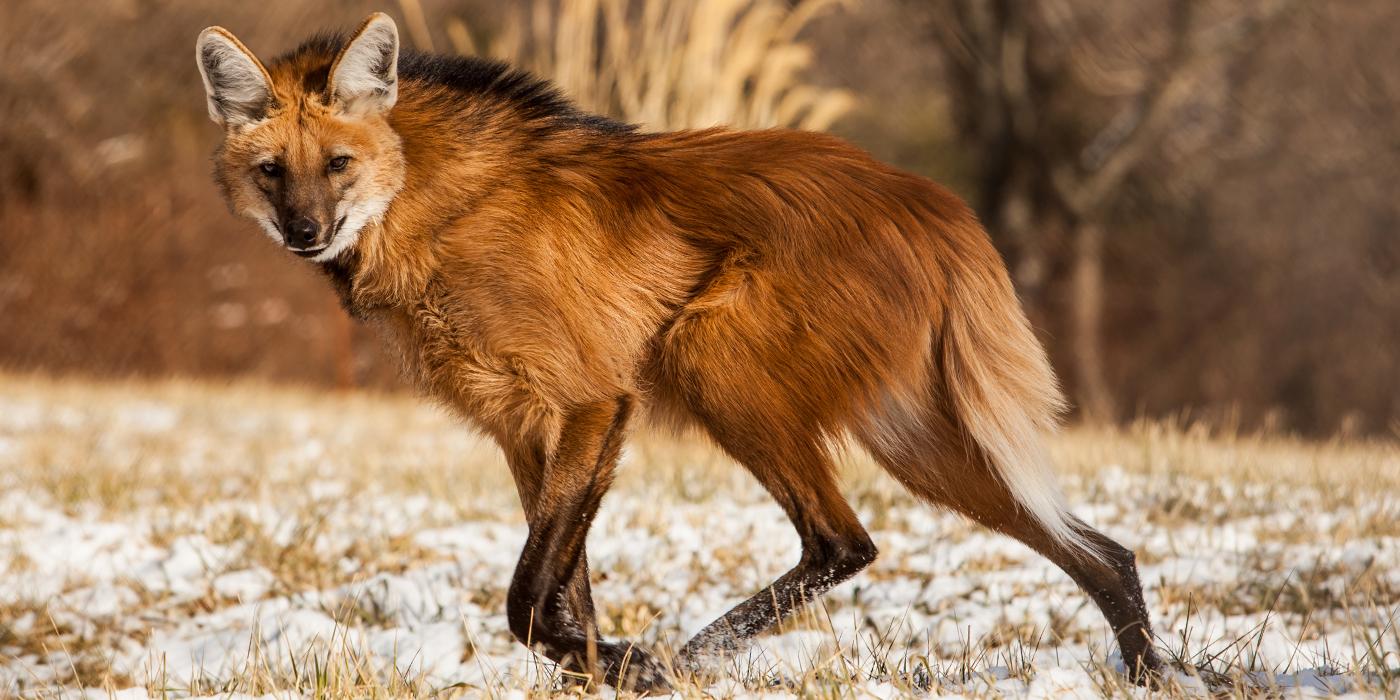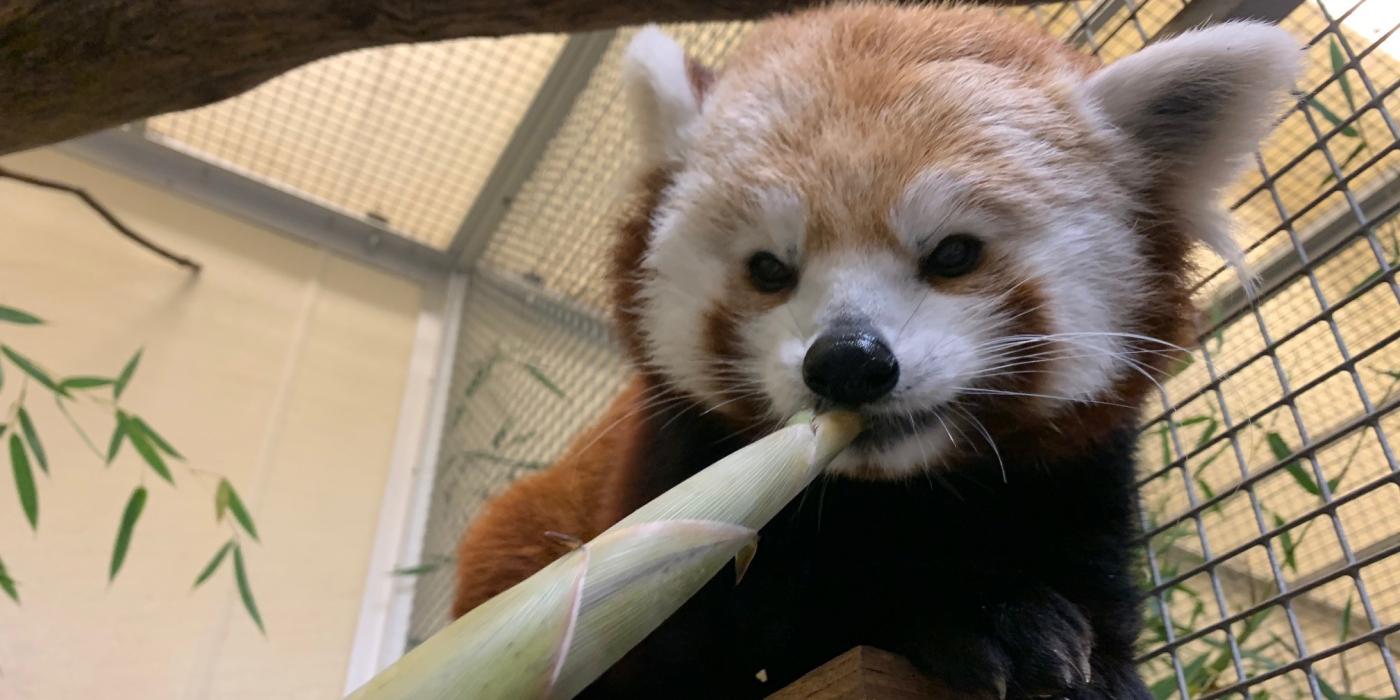Maned Wolves Science Q&A
The maned wolf pups born Jan. 5 at the Smithsonian Conservation Biology Institute are growing! Animal Care curator Paul Marinari and research biologist Nucharin Songsassen give us the scoop in the latest SCBI Q & A.
This story appears in the May 2016 issue of National Zoo News. Want animal tales delivered straight to your inbox? Sign up for the e-newsletter here.
What are the pups’ personalities like?
Right now, the pups are spending most of their time in the den with mom. But when they do venture out, keepers can catch a glimpse of their personalities. The female has a feisty personality and is definitely the more adventurous and inquisitive of the two. Her brother tends to be a bit more shy and timid.
Do they have a favorite toy?
It's important that we give our maned wolves enrichment that encourages them to use the same behaviors they would use in their native habitat. Maned wolves like to hunt and search for their food. They have quite a large yard at SCBI, so keepers will often mimic a "hunt" by scattering the wolves' diet among the grass and vegetation. To make the enrichment a little more challenging, we'll put a variety of food in a PVC-tube puzzle feeder that they have to roll around and cause the treats to fall out. Aside from food enrichment, keepers will suspend brightly-colored jolly balls from the trees, which the wolves will pounce on and use to play tug-o-war.
Are the pups training?
Because they’re still spending quite a bit of time in the den, animal care staff are keeping their distance so that mom Zayda can bond with her pups. At this time, the pups haven’t started training with the keepers yet. However, keepers will soon start positive reinforcement training. Our animals always have a choice to either participate in the training sessions or walk away. If they do participate, they’re rewarded with some of their favorite foods. Maned wolves are omnivorous, and their diet consists of small mammals (frozen-thawed mice), fruits, and vegetables.
Keepers will train the wolves to voluntarily climb upon a scale, which will allow us to monitor their weights and assess their health. We will also train the pups to voluntarily enter a crate. It’s important that they are comfortable inside a crate whether we’re transferring them to a different yard, up to the vet hospital, or even sending them to a new zoo for breeding. We want these experiences to be as positive and stress-free for the wolves as possible.
How long will the pups remain with their parents?
In the entire North American maned wolf Species Survival Plan, only four pups survived this year—including these two. Because maned wolves are a vulnerable species, it’s important that we maintain a genetically diverse population. Luckily, dad Echo is one of the most genetically valuable maned wolves in human care. And, with the birth of these pups, we now have 11 maned wolves at SCBI.
At five months old, the pups are still quite dependent on Zayda. They’ll stay with her at least until the next breeding season, which is in October. The maned wolf Species Survival Plan meeting is held at the end of May, and scientists will determine whether Echo, Zayda, or both are recommended to breed this year. If they are, we will slowly begin separating the pups from their parents. However, if the pair is not recommended for breeding, then the pups can stay with their parents until next year. Ultimately, it’s possible they could stay here at the Smithsonian Conservation Biology Institute, or they could be transferred to other zoos.
Related Species:

